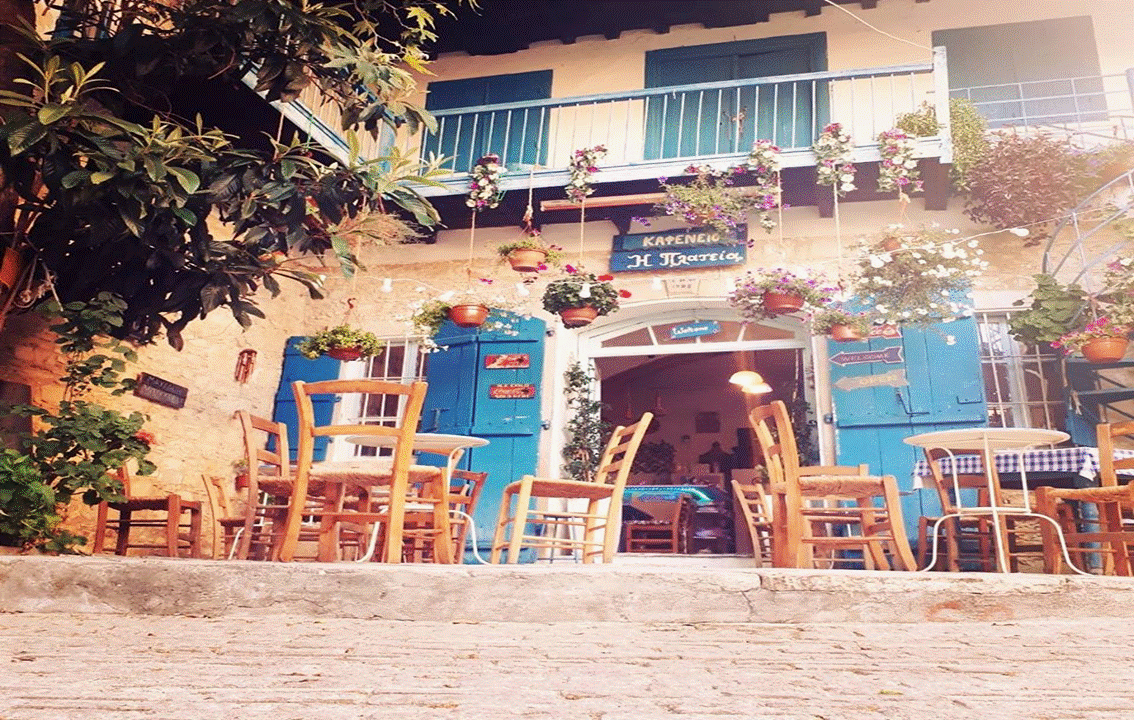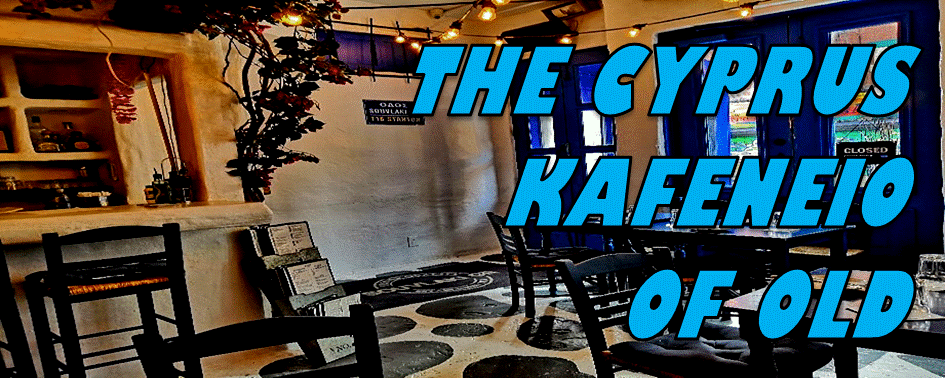
THE TRADITIONAL COFFEE SHOP’S
VALUED PLACE IN CYPRIOT SOCIETY
THE MAIN FOCAL POINT FOR CYPRIOTS
In earlier times, the traditional Cyprus coffee shop or ‘Kafeneío’ as it was known, was the focal point of all male Cypriot life. These establishments throughout the ages gained in popularity, mainly because they would allow patrons a brief respite from their daily poverty-stricken lives. The local traditional coffee shop also became a welcome sanctuary or haven for most men, spending several hours a day drinking, conversing or playing cards or other table games with one and other. These establishments were also a place where men could discuss important matters of the day, or perhaps settle transactions or disputes and the coffee shop was also the main forum for sharing political views and analysis, or perhaps telling a funny story and sharing the latest gossip.
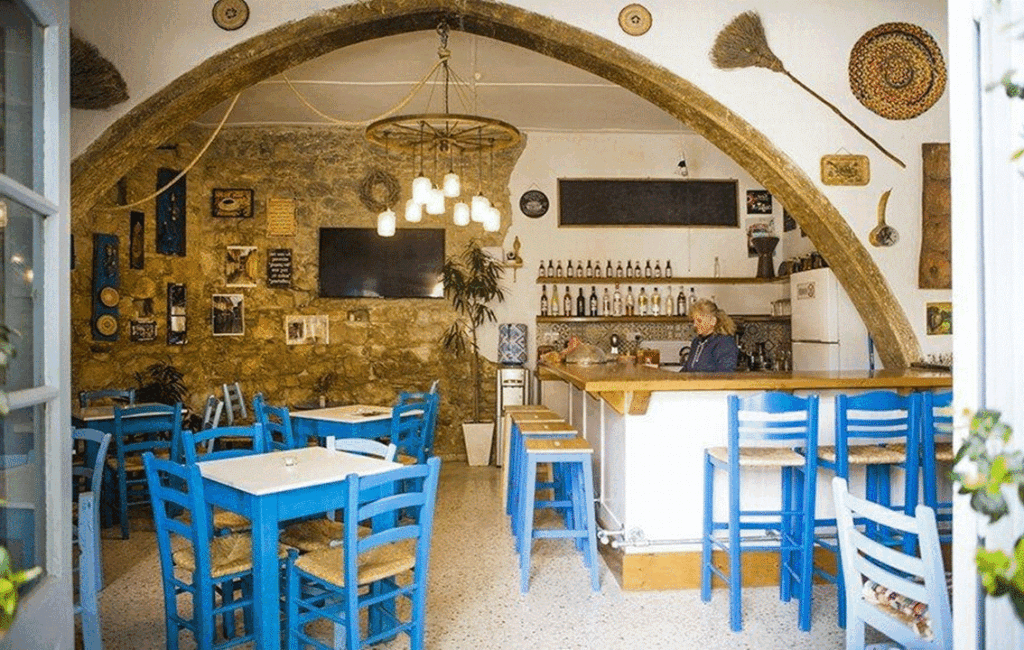
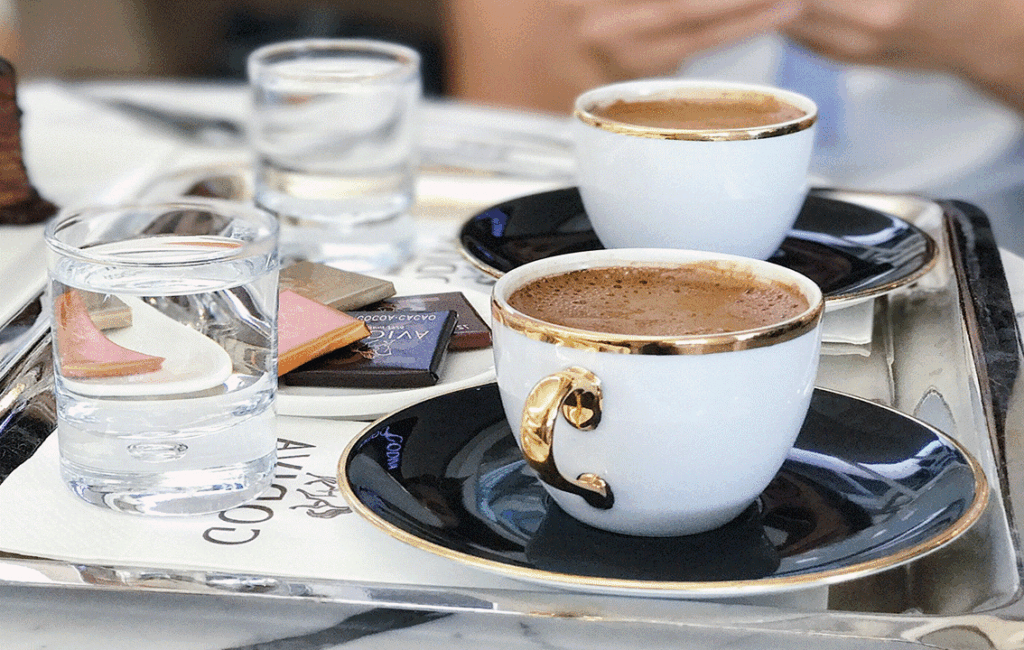
AN IMPORTANT MEETING PLACE
Coffee shops also served as a hub for important people to meet. These included the local village priest or teacher along with the local policeman, who would use his local coffee shop to meet regularly with rural constables, who were known as ‘Agrophylakes’. The village headman, known as the ‘Mukhtari’, and his assistants, known as ‘Azades’, who also acted as the local tax collectors, would also conduct some of their daily business at the village coffee shop.
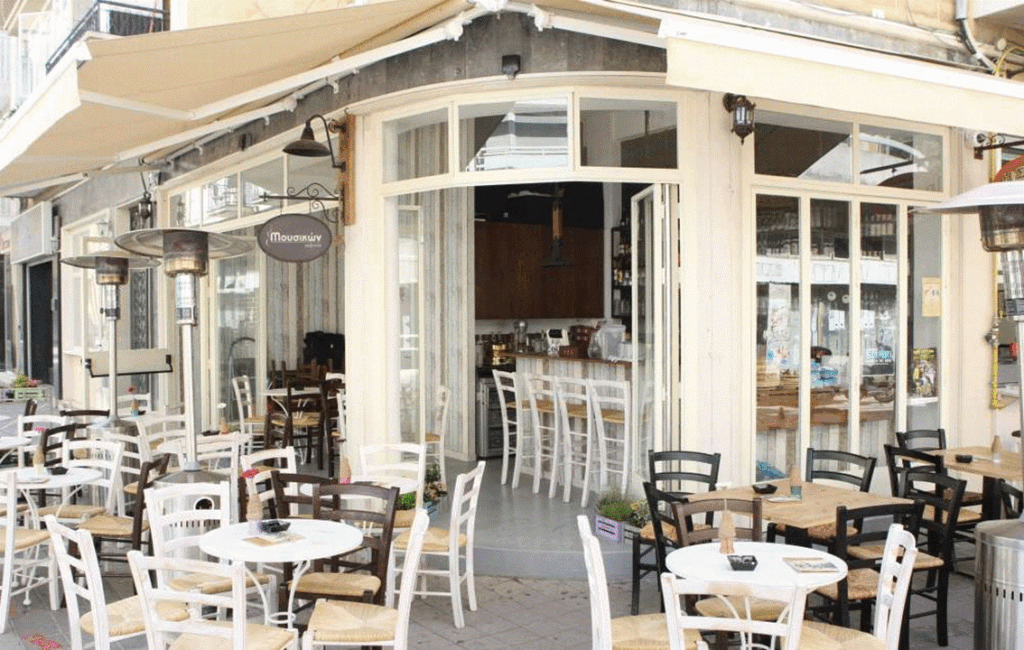
SIMPLE BUT EFFECTIVE
Each coffee shop usually consisted of a single large roomed building filled with a few hand-made wooden tables and reed or rush-woven chairs. A large glass-fronted cupboard would store cups and glasses and before the advent of electric refrigeration, flat-lid units often containing large ice blocks, would be used to chill drinks and some foods. Most of these establishments also had a raised fireplace with a receptacle for charcoal, which was usually kept smouldering to constantly heat hot sand for coffee brewing.
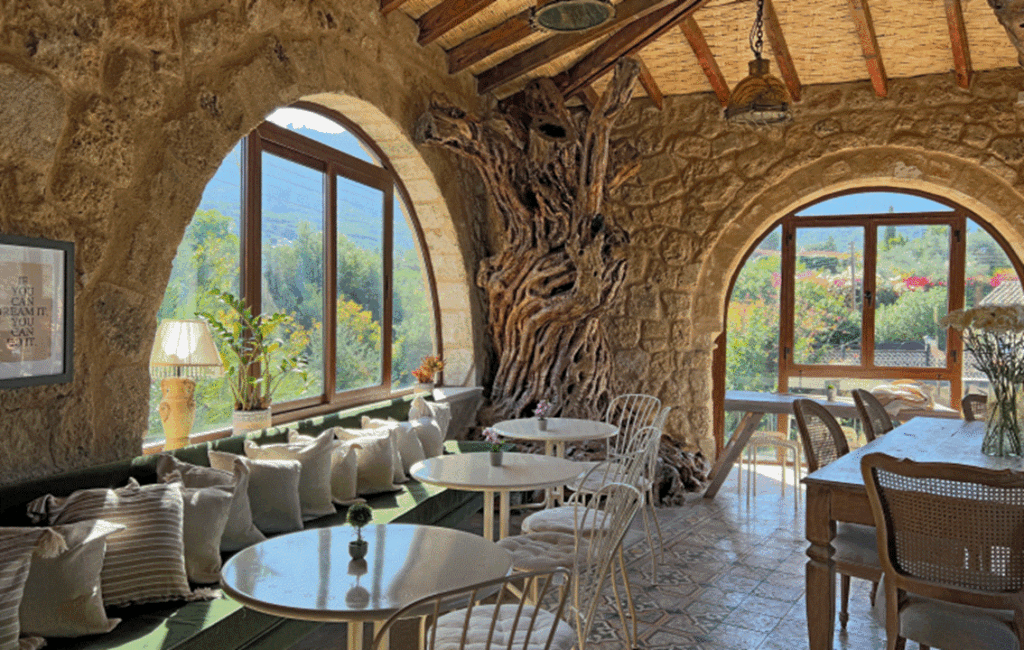
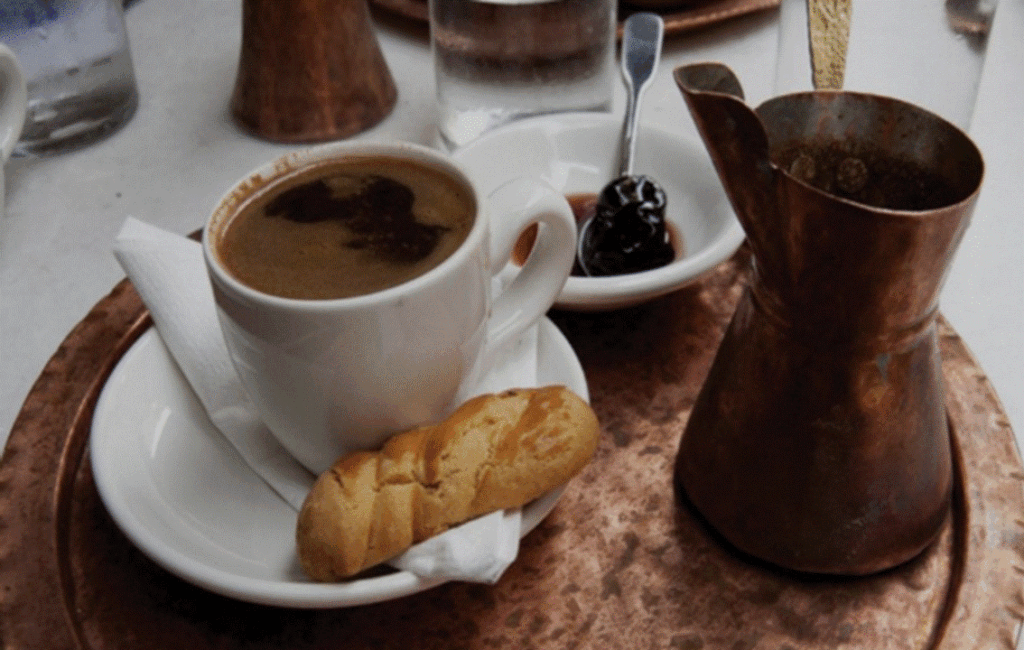
In addition to food, snacks and hot and cold beverages, alcohol and various tobacco products were also available for purchase. Some coffee shops had a large blackboard or slate that kept a tab open for patrons to record the amount owed to the coffee shop owner. An outside veranda or a built-up pavement, with a tree or a grapevine canopy usually provided shade for patrons during the summer months.
A POPULAR PLACE
Coffee shops became so popular in some villages that men would sometimes have to queue and wait for an empty chair to become available, prompting more to open. According to ‘A survey of rural life in Cyprus’ which was published by the British Government in 1930, the average amount of money spent by most Cypriots at their local coffee shop was around 10% of their annual income. The survey also stated that the district of Kyrenia had the greatest number of coffee houses in Cyprus in proportion to the island’s population and over the years, some of the larger villages and towns boasted several coffee shops. This saw each coffee shop begin to align itself with local sporting clubs, football teams or certain political movements giving their patrons a common theme of interests.
A HUB OF ACTIVITY
Traditionally, nearly all coffee shops in rural Cyprus were located in and around the main village square, along with other notable businesses, creating a hub of activity. Other businesses tried to be situated as close to a local coffee shop as possible and it would not be uncommon for the local grocery store, barbershop, bakery or butcher to be near one. Important meetings often took place at the local coffee shop and various moneylenders, masons, farmers, shepherds and merchants conducted their daily business there using these establishments as a platform to discuss prices or broker new business agreements. Fruit and vegetable vendors would arrive by donkey and cart to sell their wares to the locals, as would wine and grain merchants. Bakers and confectioners would also frequent their local coffee shop on Sundays and during holidays, selling fresh pastries and other sweet delicacies to patrons. Coffee shops were also used as a forum for people to vote on important matters or to sign important documents or start new petitions with ample witnesses on hand and many disputes were often settled there.
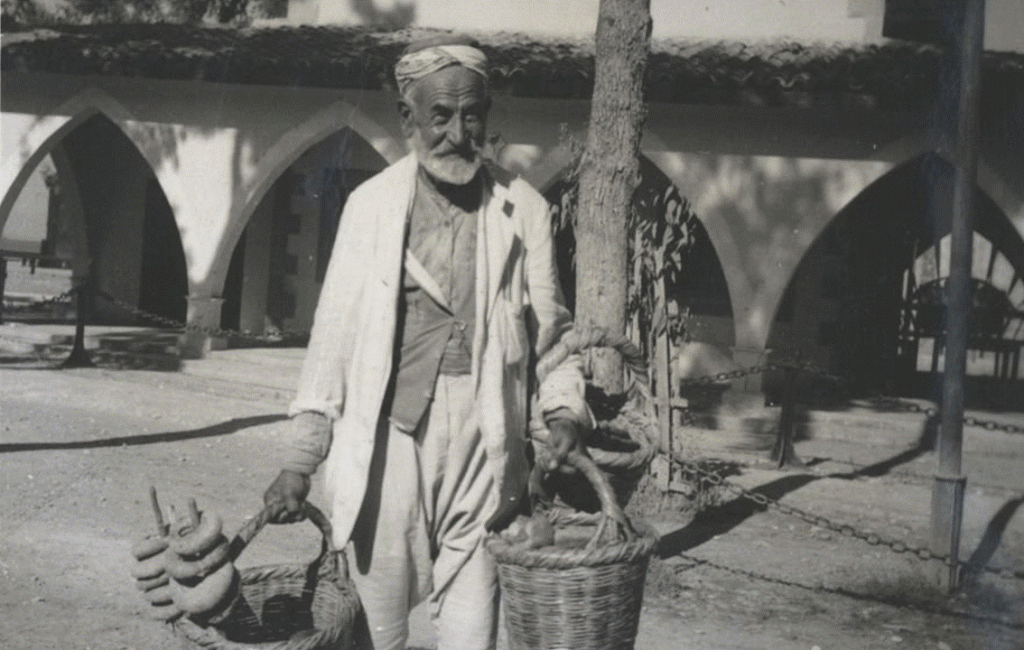
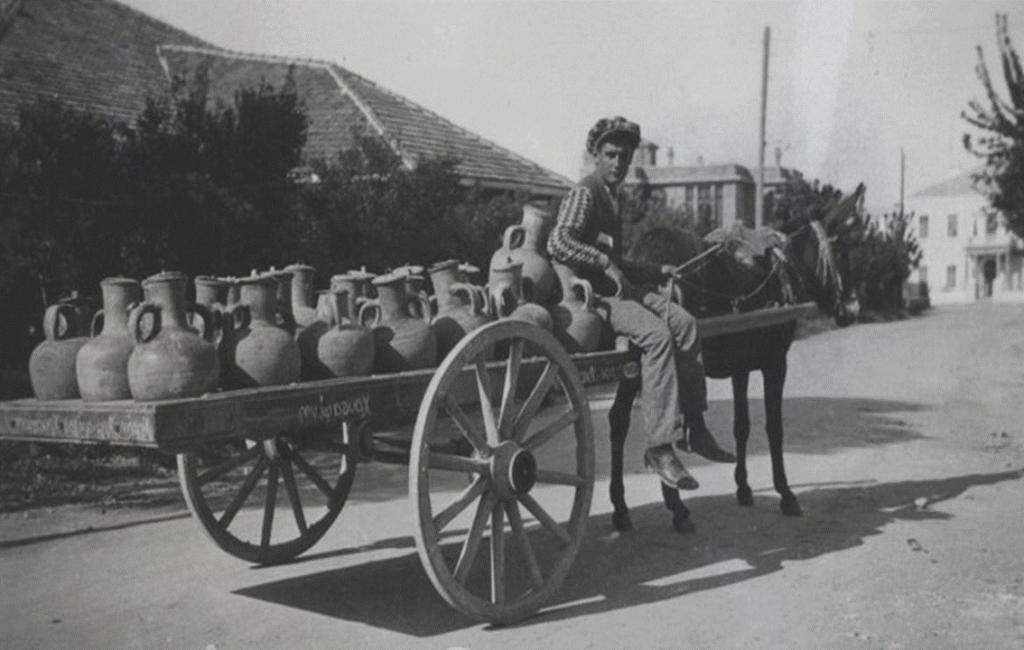
A REGULAR HAUNT
Cypriot men regularly visited their local coffee shop two or three times a day and they would spend their time smoking, drinking and playing some unique Cypriot card games, Cypriot versions of backgammon, chess and checkers. Loud sounds from patrons engrossed in these games would often be heard, as they shouted and clapped their hands loudly onto the table. The coffee shop also became a convenient place for passing travellers to stop for refreshments and meet with the residents and anyone seeking local information would normally start at the local coffee shop first.
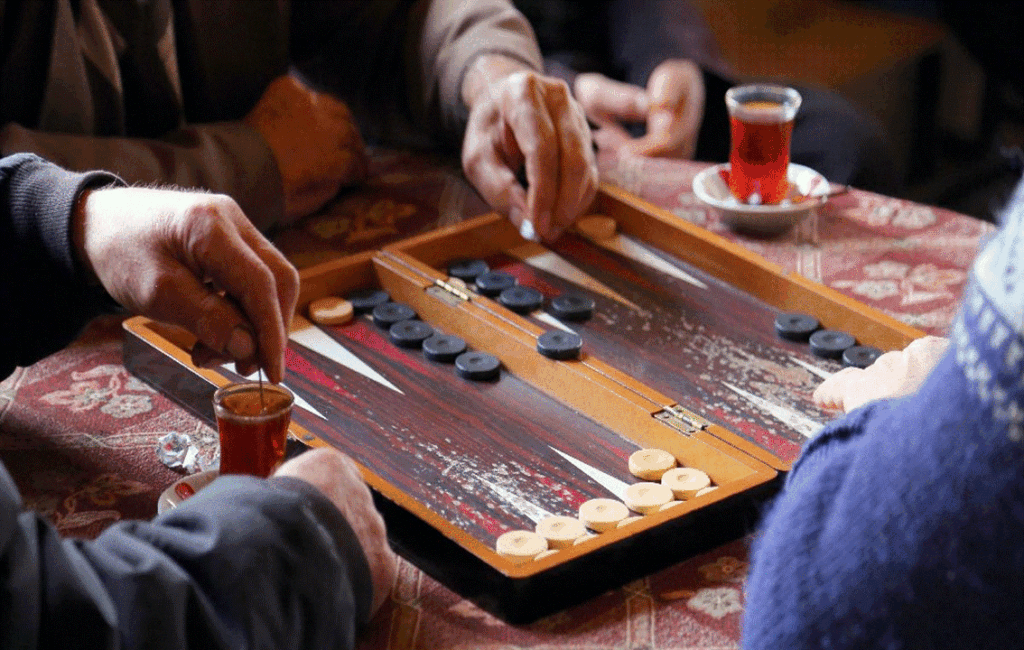
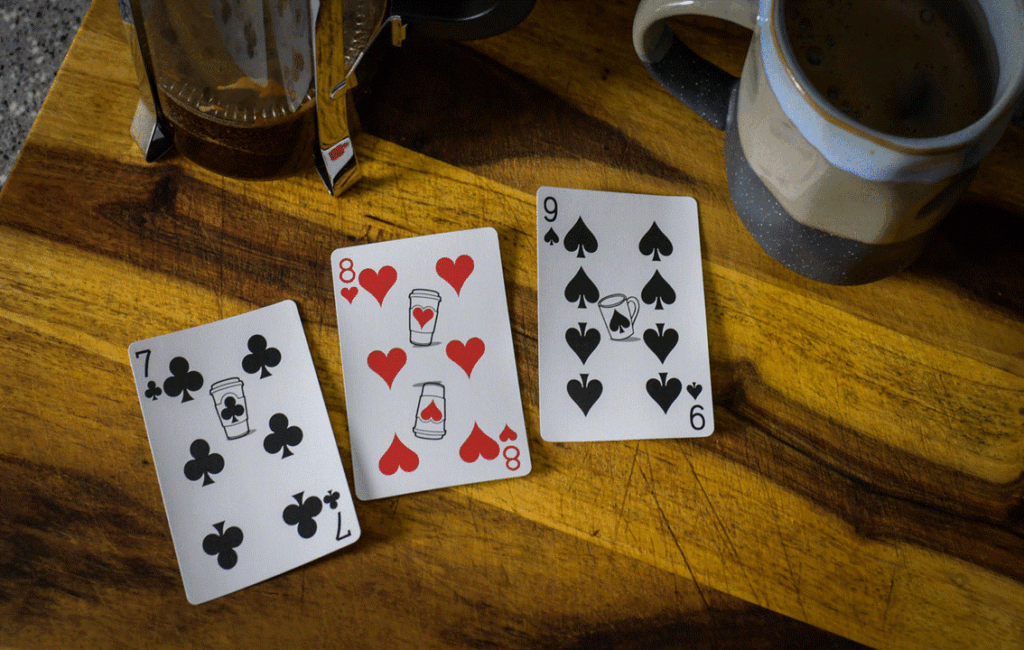
It was common practice at the coffee shop for people to take turns paying for each other’s coffee. A patron entering the coffee shop would receive a coffee paid for by the previous patron to enter and this would continue throughout the day. When an unknown stranger entered, the coffee shop owner would often treat him to a free coffee in exchange for news from faraway villages or towns.
EVENTS & SHOWS
Children and women were once forbidden from entering the coffee shop and in some villages, they weren’t even allowed to walk past them. The only women to be found in these establishments were the wives and daughters of some of the owners who would sometimes allow them to help cook the food or serve some of the patrons. Some coffee shop owners would often hold barbeques during the weekends and in this way, the village coffee shop would be transformed into a bar or tavern. The ‘Karagiozis’ was a travelling shadow hand puppet theatre that coffee shop owners hosted three or four times a year. These much-anticipated high-demand events were the main form of light entertainment of the time, and they were exclusively held only at some select coffee shops all over Cyprus at various times of the year. Coffee shops would also hold weekly events, such as bingo or quizzes and they were the first establishments to introduce weekly movie nights with the advent of television and projectors.
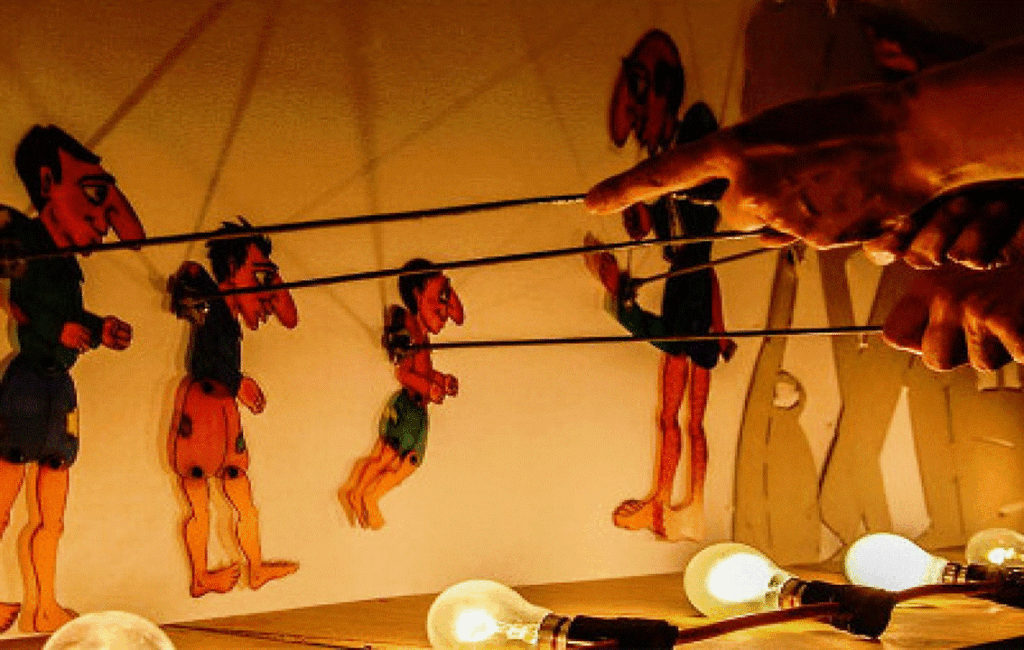
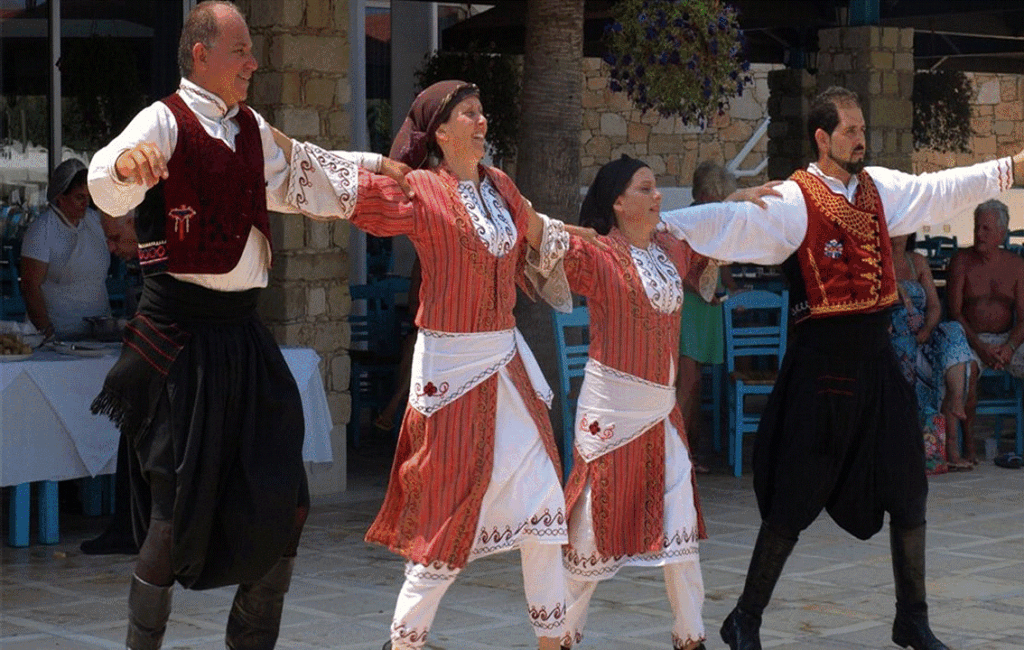
TECHNOLOGY INNOVATORS
Coffee shops were also often the first establishments to embrace the new technology of their time and they were instrumental in introducing several innovations to their local village. They were the first public establishment to use alcohol spirit lamps, and at the turn of the 20th century, when most of the inhabitants in rural Cyprus were illiterate, the coffee shops would hold evening newspaper readings. A designated village reader would read aloud the stories and daily news from the day’s newspaper for all to hear.
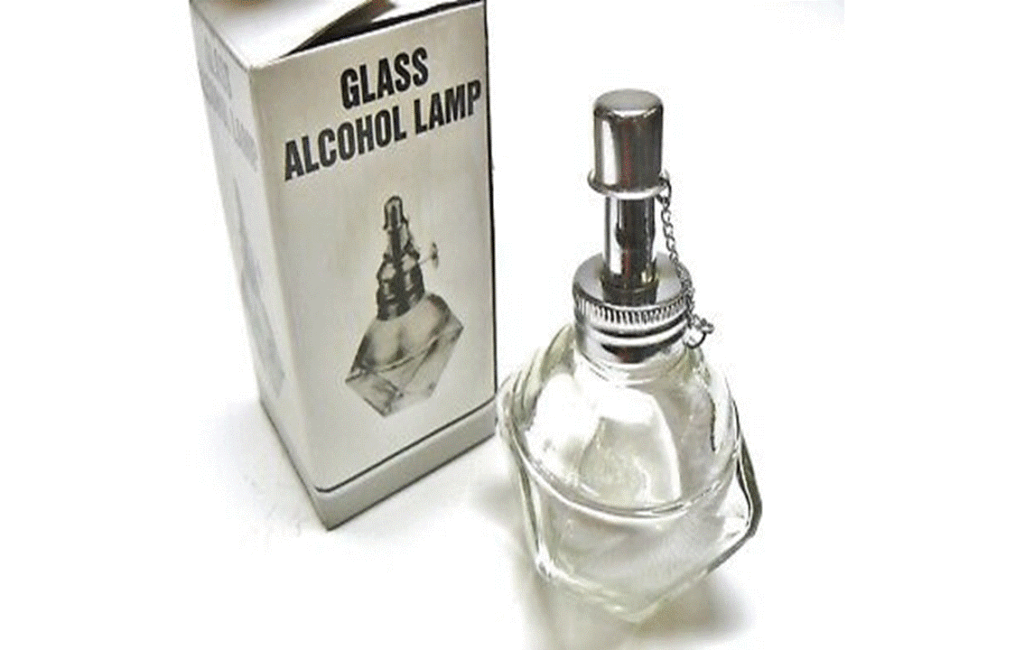
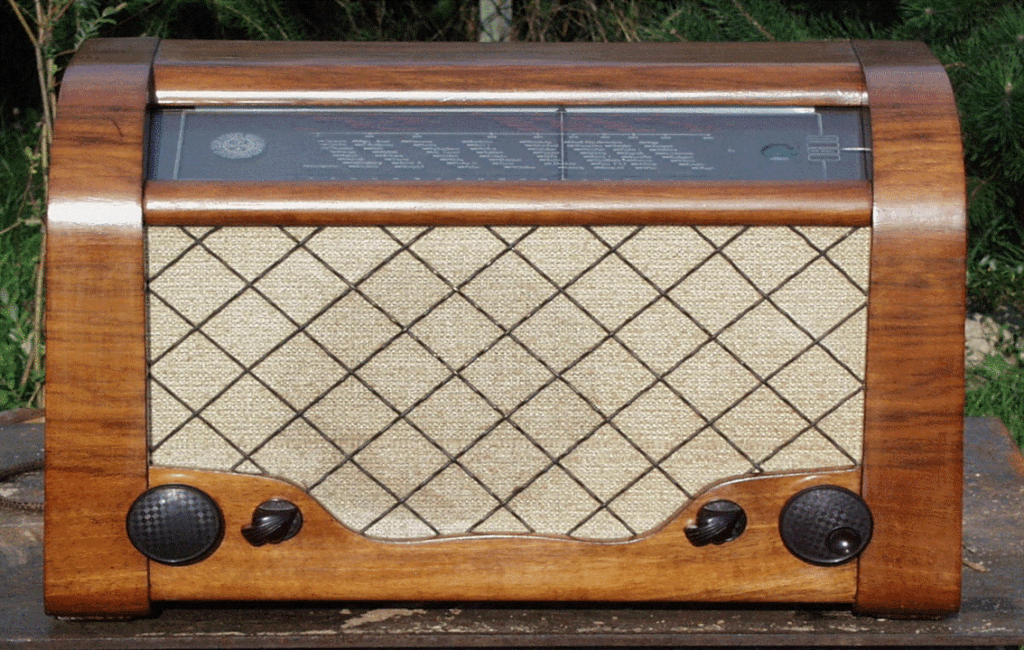
Several coffee shop owners were also the first to purchase and install wireless radios during the early part of the 20th century, rendering newspaper readings redundant. Men would gather instead at the coffee shop to listen to news broadcasts from all over the world. Coffee shop owners were also the first to introduce gramophones, billiard and foosball tables and later television sets, pinball machines and electronic arcade games to their village.
THE COFFEE SHOP'S ROLE TODAY
Traditional Cypriot coffee shops still play a multifaceted role in today’s modern society and every Cyprus village today still has one. Whilst the traditional coffee shop still exists, newer modern cafes have evolved to cater to a younger clientele that generally look upon the traditional coffee shop as old-fashioned, so it is fair to say that its role in modern society is not as potent as it once was. The traditional coffee shop still serves as a vital social hub, fostering community connections, and preserving elements of traditional Cypriot cultural identity, but it still faces challenges from globalisation and changing consumer preferences. While these establishments continue to adapt to the complexities of modern life, they have remained steadfast in their attempt to hold on to their traditions. They still focus on the importance of the local community, culture, and connection, in a modern world that often feels fragmented leading to most agreeing that the traditional Cypriot coffee shop still stands as a testament to the power of togetherness and shared experiences that make up a huge part of the Cypriot heritage.
